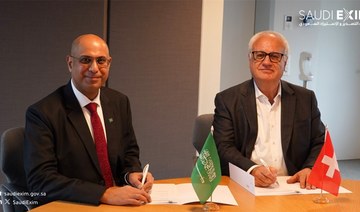RIYADH: Saudi Arabia’s Tadawul All Share Index wrapped up Monday’s trading session at 12,259.60 points, witnessing an increase of 42.55 points, or 0.35 percent.
Nomu, the parallel market, ended the day at 26,859.37 points, shedding 336.56 points or 1.24 percent. Concurrently, the MSCI Tadawul Index grew by 5.34 points to close at 1,535.83, a 0.35 percent increase.
TASI reported a trading volume of SR7 billion ($1.86 billion), with 85 stocks making gains and 134 witnessing declines.
Nomu, on the other hand, saw a trading volume of SR28 million.
On the announcements front, ADES reported a substantial revenue increase of 60.5 percent year on year to SR1.53 billion in the first quarter of 2024, fueled by significant contributions across its operational regions.
According to its financial results, the deployment of all 19 rigs for the Aramco megaproject beginning in March, up from only four in the same period last year, was a key driver.
Additionally, Kuwait’s operations generated SR152 million following the activation of all recently awarded contracts, achieving a total of 10 operational rigs, according to a bourse filing.
In India, the gradual deployment of three rigs contributed SR40 million.
The company’s net profit saw a remarkable surge of 124.6 percent year on year to SR200.9 million, benefiting from strong revenue performance and enhanced earnings before interest, taxes, depreciation, and amortization margins.
Abdullah Al Othaim Markets Co. also released its financial results for the first quarter of 2024, witnessing a 3 percent drop in profits despite an increase in revenue.
The company reported profits of SR116.4 million, down from SR120 million during the same period in 2023.
This decline was attributed to higher expenses linked to new branches, including a SR4.7 million increase in leasing finance costs, a SR2.3 million decrease in the performance of associate companies, and a SR4.8 million decrease in profits from Sharia-compliant liquidity investments.
Despite the decrease in profits, the company experienced a 9 percent growth in sales, bolstered by both existing and newly opened branches during the quarter.
Saudi Ground Services Co. also saw an increase in revenue with total earnings reaching SR653.2 million for the current quarter, marking a 15.8 percent rise from SR563.9 million recorded in the same quarter of the previous year.
This surge was primarily driven by an uptick in domestic and international flights and an increased number of Umrah pilgrims.
Consequently, the company’s net profit soared by 77.7 percent, amounting to SR71.2 million, compared to SR40 million in the prior year’s corresponding quarter.
The rise in profits was attributed to the significant revenue growth and effective cost management strategies, including a reduction in administrative expenses and a boost in other income.
Riyadh Cables Group Co. also closed the first quarter in green, with revenues leading to significant financial growth.
The company reported a profit increase to SR169 million in the first quarter of 2024, up 35.3 percent from SR124.8 million in the same quarter last year.
The company attributed this robust growth primarily to an increase in sales revenues and the volume of quantities sold, bolstered by a diversification of the products sold.
Moreover, the operating profit for the first quarter reached SR208.2 million, marking a 34 percent increase from SR155.5 million in the corresponding quarter of the previous year.
Saudi Arabian Mining Co., also known as Ma’aden, saw a significant increase in net profits despite a drop in revenue for the first quarter of 2024.
The company’s sales decreased to SR7.3 billion, a 9 percent drop compared to the same quarter of the previous year, primarily due to lower commodity prices across all products except gold and alumina.
However, this was partially offset by higher sales volumes of primary aluminum, ammonia, and gold.
Net profits surged by to reach SR981 million, a 134 percent increase compared to Q1 2023, largely attributed to a SR828 million, 52 percent, increase in gross profit.
This improvement was driven by higher sales volumes, reduced raw material costs, lower depreciation expenses, and a one-time insurance claim of SR199 million for relining pots within smelter plants.


















